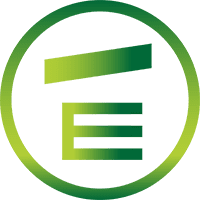How Do I Know That My Computer Is Hacked?
Share this on:
No doubt, the online world gives us the best of life. It introduced new possibilities and even created new industries. But it also brings the worst to people. Along the way, internet and computer hacking became a new way of thievery that affects not just individuals but also businesses.
How to know if your computer is hacked? Here are things you can do to protect yourself and your computer from hackers and spyware:
Here are some symptoms your computer might experience:
- Pop-up windows like those that encourage you to visit unusual sites, or download antivirus or other software
If you see random pop-ups with false anti-virus messages telling you to hurry and download new software, you’ve probably been hacked.
- Sudden receiving of friend invites or connections
This happens when you or your friends receive invitations for connections again after connecting with them. The hacker is either trying to gain control of your social media, would like to create a look-alike bogus page, or you or the friend has installed a rogue social media application. Check your apps!
- Changes to your home page
One common sign of online exploitation is when your browser has multiple new toolbars that say it can help you. But if you don’t recognize any of it, it’s time to dump the bogus toolbar.
- Frequent crashes or unusually slow computer performance
One of the effects of malicious software is slowing your gadget’s system. If you notice some symptoms like sluggishness, constantly freezes, or even crashes, your gadget may very well be infected with any viruses, trojans, or worms.
- Gadgets suddenly restart
Automatic restarts, software updates, and new application installs can prompt you to reboot your computer and are part of normal computer life. Your system will always warn you when these happen. But sudden restarts are a different story.
- Unusual activities like password changes and notifications
If you receive random notifications like password changes on your accounts, then probably hackers are trying to access them. Hackers frequently use non-technical means to steal your data and gain access to your banking accounts, your social media profiles, and any of your online services, so make sure to never entertain those notifications unless it is you.
Here are tips for protecting you and your computer from Getting hacked:
- Use an antivirus
Make sure to choose one that also can fight against any malware or hacking, and update it regularly.
- Scan attachments before opening them
Files sent to you either from emails or any messaging platform are an easy way to install malware on your device, making it vulnerable. Scan first before opening them to avoid getting hacked.
- Use VPN software
Having VPN can hide your IP address and encrypts data, ensuring hackers cannot access it.
- Update your operating system when your gadget asks for it
Based on several studies, most gadget updates come with security patches, so make sure to don’t skip them.
- Customize your router name and password
We are stressing this one: Choose a unique, complex password and increase your IoT security as a strong first line of defense from getting hacked.
- Always back up your data
What a good practice if you have all your data backed up just in case something might happen. It gives you assurance to still retrieve your files if you ever lose access to them on your device.
- Enable login alerts and multi-way authentication
Make it a habit to keep an overview of your logins to spot any suspicious activity.
- Avoid public Wi-Fis
More often than not, they’re unsecured and a haven for hackers and scammers, so avoid them.
We know how online hacking is too prevalent nowadays so hopefully, this guide helps you navigate your way through the internet world. Let us know what you think!





